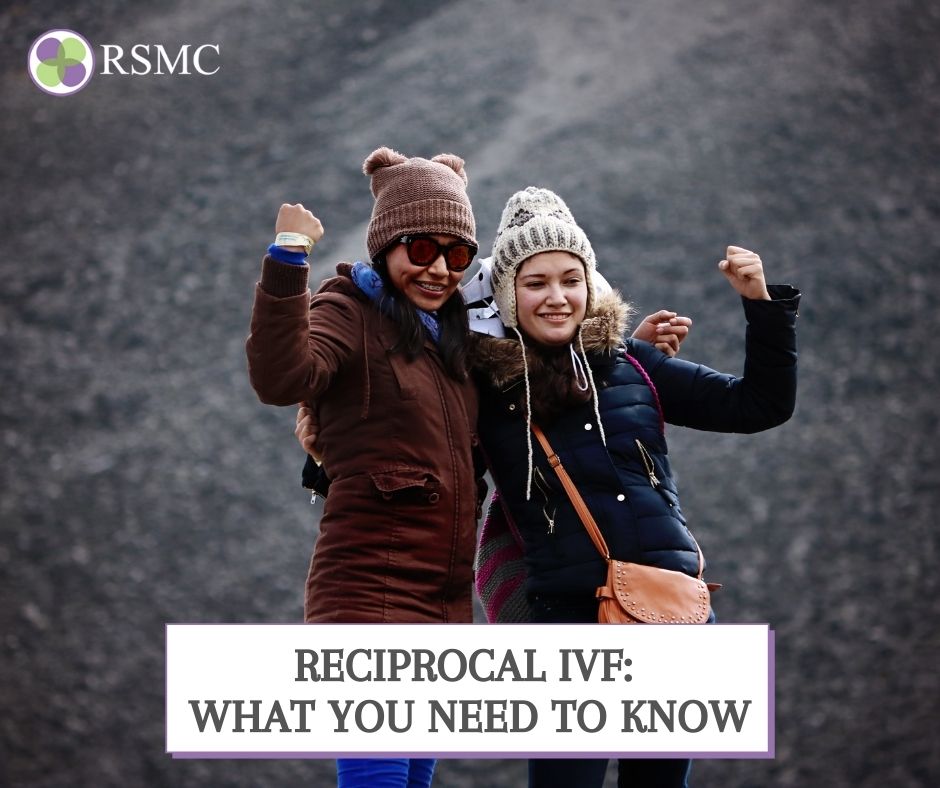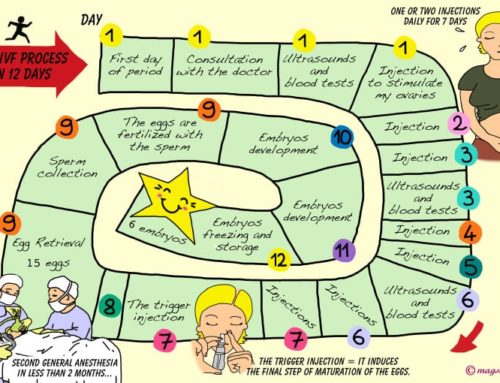Reciprocal IVF is an exciting fertility option for prospective parents in same-sex relationships. Unlike traditional IVF for heterosexual couples or the surrogacy process, it allows both lesbian or transgender partners of the LGBT community to take part in family planning and involve in the biological process of conceiving a baby. As a leading LGBT friendly fertility clinic in San Diego, CA, we take pride to offer reliable family planning options such as reciprocal IVF, IUI, and surrogacy. In this post, we are going to discuss what reciprocal IVF means, the duration, and the costs. We will also look into the legal implications of the procedure.
What is Reciprocal IVF? How does it help in LGBT Family Planning?
Reciprocal IVF is sometimes referred to as partner IVF, shared motherhood, or co-IVF. It is a method of family building that enables both partners to equally participate in the IVF process. One of the partners takes the preliminary steps, undergoing all the testing needed to harvest the eggs. The collected eggs are then fertilized and placed in the womb of the other partner. The second partner carries and delivers the baby.
This process is more popular amongst Lesbian Couples. However, transgender men with fully functioning ovaries can also consider reciprocal IVF with the help of an LGBT friendly fertility clinic.
How long does it take?
Reciprocal IVF is similar to Egg-Donor assisted IVF, which involves the use of a Surrogate Mother or an Egg Donor. One of the Same-sex Couples administers injectable fertility medication and undergoes medical workup and genetic testing. This entire procedure is in preparation for the first major milestone of the procedure: the egg retrieval.
Meanwhile, the other partner gears up for another big milestone of the process, which is the transfer of the embryos. After the retrieval, eggs undergo fertilization with donated sperm to create embryos. The fertility expert will then carry out the necessary testing and choose the most viable, healthy embryos for implantation.
The entire process usually takes about 2-3 months. However, the duration could be longer due to certain medical issues or circumstances.
What does reciprocal IVF cost for LGBT Family Planning?
Generally, the costs of partner-IVF are relatively similar to that of donor-assisted IVF using an LGBT fertility clinic. Depending on the state you reside in, your insurance may cover all or some of the medical aspects of the process. This may include the diagnostic tests and doctor visits for the woman carrying the pregnancy. However, most insurance providers don’t cover the costs of reciprocal IVF unless it’s medically advised. In such cases, the women who will be donating the eggs would also carry the pregnancy in her womb. On average, the costs of an IVF cycle with a fresh embryo transfer is around $15,000 to $20,000.
The costs of reciprocal IVF may vary from one fertility clinic to the other. So, before going for the procedure, it’s important to know all the expenses you may incur and whether your insurance will be covering them.
What are the legal implications of partner IVF?
The legal issues with partner IVF also are a bit complex and may vary from one state to the other. You will want to ensure that both couples have rights over the child. Make sure that both of your names are present on the baby’s birth certificate. For this to occur, the woman who donates the egg would need to legally adopt the baby.
When considering reciprocal IVF, it’s always good to consult with a lawyer who is well versed in reproductive law in your state. This will enable you to know the best course of action.
What’s the future of reciprocal IVF and LGBT Family Planning?
In the past, standard IVF, IUI, or surrogacy were the only options for members of the LGBT community (Same-sex Couples and/or Transgender Partners) for family planning. Therefore, only one of the partners could be biologically related to the child. But thanks to reciprocal IVF, both partners can now play a significant role in the creation of their baby. Although only one partner donates the genetic material, the other can experience a connection with the child through pregnancy and delivery. Studies have shown cells can cross the placenta and introduce the mother’s DNA to the baby, and vice versa. Even though this does not impact the genetic makeup of the child, it’s still a special connection that a mother can share with her baby.
Recent advances in reproductive technologies have had a lot of people wondering if it’s possible to combine two female eggs to produce an embryo. We are still far away from that reality. However, scientists are exploring the idea of making eggs or sperm from stem cells. In theory, the cell of a female partner can be used to produce sperm, which can then be used to fertilize the other partner’s eggs.
Conclusion
Want to know more about reciprocal IVF and transgender family planning options? Interested to see how our LGBT friendly fertility clinic can help you with other pregnancy options such as IUI and surrogacy? Contact us to schedule a consultation or visit our website to learn more.























